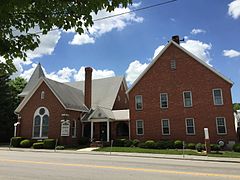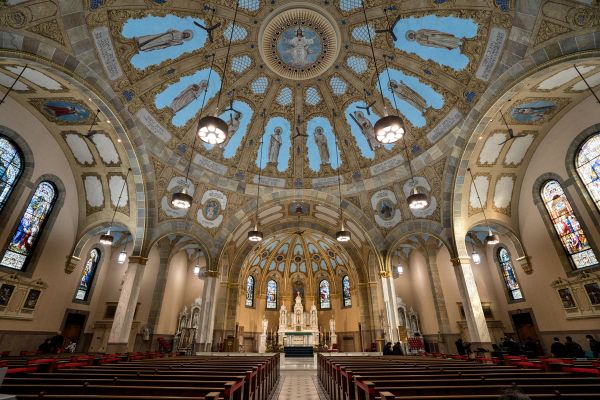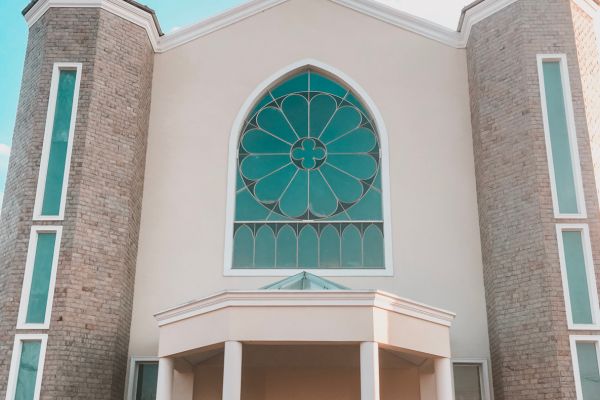United Methodist Church Student Loans: A Comprehensive Guide
In today’s competitive educational landscape, securing financial aid for higher education has become increasingly important. For students affiliated with the United Methodist Church (UMC), a unique opportunity exists in the form of UMC student loans. This comprehensive guide will explore the various aspects of United Methodist Church student loans, providing valuable insights for prospective borrowers and their families.
Table of Contents
- Introduction to United Methodist Church Student Loans
- Types of UMC Student Loans
- Eligibility Requirements
- Application Process
- Loan Terms and Conditions
- Repayment Options
- Benefits of UMC Student Loans
- Comparing UMC Loans to Other Options
- Success Stories and Testimonials
- Financial Planning and Budgeting Tips
- Additional Resources and Support
- Frequently Asked Questions
1. Introduction to United Methodist Church Student Loans
The United Methodist Church has a long-standing commitment to education, recognizing its power to transform lives and communities. As part of this commitment, the church offers student loans to help members pursue their educational goals without the burden of excessive debt.
UMC student loans are designed to supplement other forms of financial aid, providing an additional resource for students who may still face funding gaps after exhausting scholarships, grants, and federal loan options. These loans often come with favorable terms and conditions, reflecting the church’s mission to support and empower its members.
2. Types of UMC Student Loans
The United Methodist Church offers several types of student loans to cater to different educational needs:
Undergraduate Loans
These loans are available to students pursuing their first bachelor’s degree at an accredited institution. They can cover tuition, fees, books, and other educational expenses.
Graduate Loans
For those continuing their education beyond a bachelor’s degree, UMC offers graduate loans to support master’s and doctoral programs in various fields of study.
Seminary Loans
Specifically designed for students pursuing religious education, seminary loans help future clergy members and church leaders finance their theological studies.
Career Development Loans
These loans support UMC members seeking to enhance their skills or change careers through vocational training or certification programs.
3. Eligibility Requirements
To qualify for a United Methodist Church student loan, applicants typically need to meet the following criteria:
- Be an active member of the United Methodist Church for at least one year
- Demonstrate financial need
- Maintain satisfactory academic progress
- Be enrolled or accepted in an accredited educational institution
- Be a U.S. citizen or permanent resident
- Meet minimum age requirements (usually 18 years or older)
It’s important to note that specific eligibility requirements may vary depending on the type of loan and the applicant’s circumstances. Prospective borrowers should carefully review the eligibility criteria for each loan program before applying.
4. Application Process
The application process for UMC student loans is designed to be straightforward and accessible. Here’s a general overview of the steps involved:
- Research and Select: Explore the different loan options available and choose the one that best fits your educational needs.
- Gather Documentation: Collect necessary documents, such as proof of church membership, financial statements, and academic records.
- Online Application: Complete the online application form, providing accurate and up-to-date information.
- Church Endorsement: Obtain an endorsement from your local UMC pastor or appropriate church official.
- Submit Supporting Documents: Upload or mail in all required supporting documentation.
- Loan Review: The UMC loan committee will review your application and make a decision.
- Acceptance and Disbursement: If approved, review and accept the loan terms, after which funds will be disbursed to your educational institution.
Applicants should be prepared for a thorough review process, as the UMC takes its responsibility to both support students and maintain the sustainability of its loan programs seriously.
5. Loan Terms and Conditions
United Methodist Church student loans typically offer favorable terms compared to many private lenders. While specific terms may vary, here are some common features:
- Interest Rates: UMC loans often feature competitive interest rates, which may be fixed or variable depending on the program.
- Loan Limits: Maximum loan amounts are set for each academic year and for the total course of study.
- Disbursement: Funds are usually sent directly to the educational institution to ensure proper use.
- Grace Period: Most UMC loans offer a grace period after graduation before repayment begins.
- Deferment Options: Borrowers may be eligible for deferment under certain circumstances, such as continued education or financial hardship.
- No Prepayment Penalties: UMC loans generally allow borrowers to make extra payments or pay off the loan early without incurring fees.
It’s crucial for borrowers to carefully review and understand all terms and conditions before accepting a loan offer.
6. Repayment Options
The United Methodist Church recognizes that repayment flexibility is essential for student borrowers. As such, they offer several repayment options to accommodate different financial situations:
Standard Repayment
Fixed monthly payments over a set term, typically 10 years for undergraduate loans and longer for graduate or larger loans.
Graduated Repayment
Payments start lower and increase over time, ideal for borrowers expecting their income to grow.
Income-Based Repayment
Monthly payments are calculated based on the borrower’s income and family size, helping to make repayment more manageable for those with lower incomes.
Extended Repayment
For larger loan balances, borrowers may qualify for extended repayment terms, spreading payments over a longer period to reduce monthly obligations.
Loan Forgiveness Programs
Some UMC loan programs offer partial or full loan forgiveness for borrowers who enter certain fields of service, particularly within the church or in underserved communities.
Borrowers are encouraged to communicate with their loan servicer if they experience difficulty making payments, as additional options or hardship programs may be available.
7. Benefits of UMC Student Loans
Choosing a United Methodist Church student loan comes with several unique advantages:
- Mission-Driven Lending: UMC loans are designed to support the educational and spiritual growth of church members, not to maximize profits.
- Competitive Rates: Interest rates are often lower than those offered by private lenders.
- Flexible Repayment: Multiple repayment options help borrowers manage their debt responsibly.
- Community Support: Borrowers benefit from the backing of their church community and potential mentorship opportunities.
- Holistic Approach: UMC loans consider not just academic potential but also character and community involvement.
- Financial Education: Many UMC loan programs include financial literacy resources to help borrowers make informed decisions.
- Potential for Forgiveness: Some loans may be eligible for forgiveness through service to the church or community.
8. Comparing UMC Loans to Other Options
When considering UMC student loans, it’s important to compare them with other financing options:
Federal Student Loans
- Generally offer lower interest rates and more protections
- Income-driven repayment plans available
- Potential for loan forgiveness programs
Private Student Loans
- May have higher interest rates
- Often require a co-signer
- Fewer repayment protections
UMC Student Loans
- Competitive rates compared to private loans
- Mission-aligned lending practices
- Community support and potential forgiveness options
While UMC loans can be an excellent option, students should always exhaust federal loan options first before considering private or church-based loans.
9. Success Stories and Testimonials
The impact of United Methodist Church student loans extends far beyond financial assistance. Here are a few success stories from past borrowers:
- Sarah J., now a pediatrician serving in a rural community, credits her UMC loan for allowing her to pursue her dream of medicine without overwhelming debt.
- Rev. Michael T. used a UMC seminary loan to complete his theological studies and now leads a growing congregation while actively mentoring youth in his community.
- Emily R., an environmental scientist, combined her UMC loan with federal aid to fund her graduate studies. She now works on sustainable development projects in developing countries.
These stories highlight how UMC loans not only facilitate education but also empower individuals to make meaningful contributions to society and their communities.
10. Financial Planning and Budgeting Tips
For students considering UMC loans, proper financial planning is crucial. Here are some tips to manage your finances effectively:
- Create a Detailed Budget: Track all income and expenses to understand your financial situation.
- Minimize Borrowing: Only borrow what you need, not the maximum amount offered.
- Explore Scholarships and Grants: Seek out free money before turning to loans.
- Work Part-Time: Consider part-time work to reduce the amount you need to borrow.
- Understand Loan Terms: Familiarize yourself with repayment obligations before accepting a loan.
- Plan for Repayment: Start thinking about how you’ll manage loan payments after graduation.
- Seek Financial Counseling: Take advantage of financial literacy resources offered by the UMC or your school.
11. Additional Resources and Support
The United Methodist Church offers various resources to support students in their educational journey:
- Financial Aid Workshops: Many UMC conferences host workshops on navigating college finances.
- Mentorship Programs: Connect with UMC members who can offer guidance on education and career paths.
- Scholarship Databases: Access to UMC-specific scholarship opportunities.
- Career Counseling: Some UMC loan programs include career planning services.
- Spiritual Support: Pastoral care and counseling for students facing challenges.
Students are encouraged to reach out to their local UMC leaders or the denominational offices for more information on available resources.
12. Frequently Asked Questions
To address common inquiries about United Methodist Church student loans, here are answers to some frequently asked questions:
Q1: Can non-UMC members apply for these loans?
A: Generally, UMC student loans are reserved for active church members. However, some programs may consider applicants with strong ties to the UMC community.
Q2: How long does the application process take?
A: The application review process typically takes 4-6 weeks, but this can vary depending on the completeness of the application and the time of year.
Q3: Are there minimum or maximum loan amounts?
A: Loan limits vary by program but typically range from $2,500 to $10,000 per academic year, with lifetime maximums for undergraduate and graduate studies.
Q4: Can I use a UMC loan for study abroad programs?
A: Yes, as long as the study abroad program is approved by your accredited home institution and contributes to your degree progress.
Q5: What happens if I leave the United Methodist Church?
A: Leaving the church doesn’t typically affect existing loans, but it may impact eligibility for future borrowing or certain forgiveness programs.
Q6: Are there age limits for UMC student loans?
A: While there’s usually no upper age limit, borrowers must be at least 18 years old and meet other eligibility criteria.
Q7: Can I consolidate my UMC loans with other student loans?
A: UMC loans cannot be consolidated with federal student loans, but some private consolidation options may be available.
Q8: Is there a penalty for early repayment?
A: No, UMC student loans do not have prepayment penalties. Borrowers are encouraged to pay off their loans early if they are able.
Q9: What if I experience financial hardship during repayment?
A: Contact your loan servicer immediately. UMC loans often have hardship provisions, including temporary deferment or adjusted payment plans.
Q10: Are cosigners required for UMC student loans?
A: Cosigners are not typically required but may help applicants qualify for better terms or higher loan amounts.
In conclusion, United Methodist Church student loans offer a valuable financial resource for church members pursuing higher education. With competitive terms, flexible repayment options, and a mission-driven approach, these loans can play a crucial role in making educational dreams a reality. As with any financial decision, prospective borrowers should carefully consider their options, understand their responsibilities, and plan for successful repayment.







